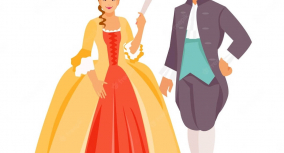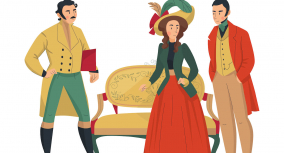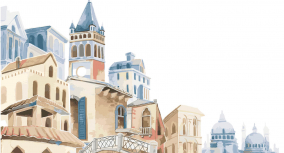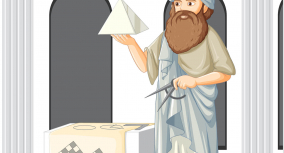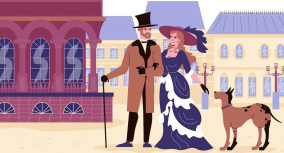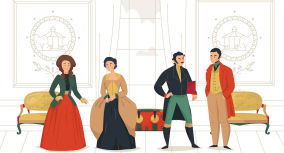If you are looking for Candide summary and analysis, you’re in the right place! This article by Custom Writing experts contains an illustrated plot summary as well as detailed chapter summaries of Candide by Voltaire.
📈 Candide Plot Summary
In Candide, Voltaire ironizes optimism and romance. His protagonist goes through a series of misfortunes and analyzes them from an optimistic point of view. He survives everything but gets disillusioned in the end. The text also raises the themes of religion, wealth, happiness, and love.
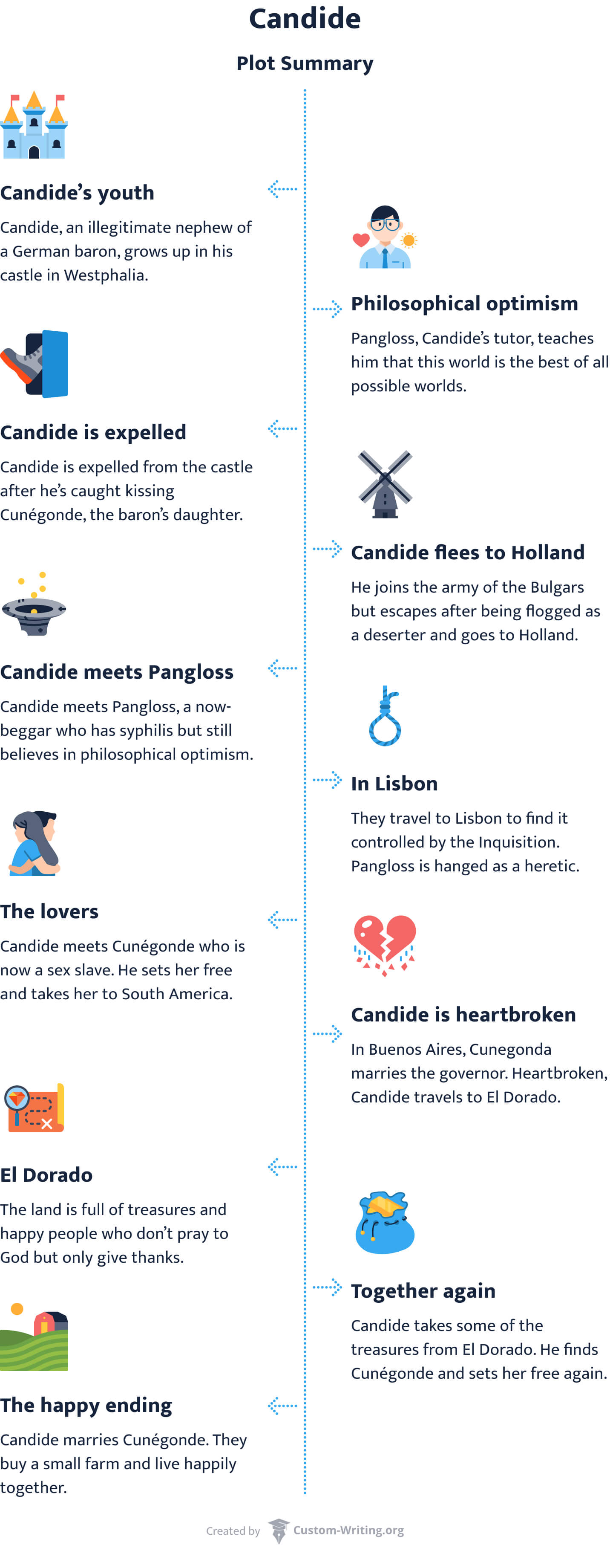
🏰 Candide Chapters 1 – 3 Summary
Candide, an illegitimate nephew of the Baron of Thunder-ten-tronckh in Westphalia, studies “metaphysico-theologo-cosmolo-nigology” with the castle’s tutor, Pangloss. The discipline teaches people to be optimistic.
He proved admirably that there is no effect without a cause, and that, in this best of all possible worlds, the Baron’s castle was the most magnificent of castles, and his lady the best of all possible Baronesses.
Candide, Narrator, Chapter I
Baron’s daughter, Miss Cunégonde, saw how Pangloss and a maid, Paquette, had sex. She looks for Candid, “filled with the desire to be learned.” Cunégonde and Candide flirt and share a kiss. Baron finds them and throws Candid from the castle “with great kicks on the backside.”
In the neighboring town, two Bulgarian soldiers make Candide join their army. With a certain effort, he succeeds in military exercises. But when Candide goes for a walk, he gets accused of desertion. He is given a choice: to run between the lines of people who beat him 36 times or to be executed. He chooses the first option pleads for mercy on the second run. When the King of Bulgaria learns that Candid is a philosophy student, he pardons him.
The King of the Bulgarians… understood from all that he learnt of Candide that he was a young metaphysician, extremely ignorant of the things of this world, and he accorded him his pardon with a clemency which will bring him praise in all the journals, and throughout all ages.
Candide, Narrator, Chapter II
During the battle between the Bulgarians and Abares, Candide hides and runs away. He walks through two villages, both destroyed by either army and both equally miserable and devastated. Candide goes to Holland, where he begs for food but receives only disdain. A kind Anabaptist takes pity on him and helps him recover. Candide’s faith in optimism is renewed.
📿 Candide Chapters 4 – 6 Summary
Candide meets hardly recognizable Pangloss begging in the street. The latter is deformed with syphilis he got from Paquette. When asked about Cunégonde, he says that the Bulgarians attacked Thunder-ten-tronckh, killed the Baron and his family, raped the girl, and destroyed the castle.
[Cunégonde] was ripped open by the Bulgarian soldiers, after having been violated by many; they broke the Baron’s head for attempting to defend her; my lady, her mother, was cut in pieces… and as for the castle, they have not left one stone upon another, not a barn, nor a sheep, nor a duck, nor a tree…
Candide, Pangloss, Chapter IV
The philosophy teacher lists all the people who transmitted the disease, tracing it back to Cristopher Columbus and his men. If the explorers of the New World had not brought the disease, the Europeans would never know such a thing as chocolate. Pangloss argues that syphilis was an unavoidable and “necessary ingredient in the best of worlds.”
Candide asks Jaques, the Anabaptist, to pay for Pangloss’ treatment. In two months, all three of them go to Lisbon, arguing whether everything is for the better. Pangloss still considers that “the more private misfortunes there are, the greater is the general good.”
During a storm, Jaques falls into the water. Pangloss does not let Candide rescue him.
[Candide] was just going to jump after him, but was prevented by the philosopher Pangloss, who demonstrated to him that the Bay of Lisbon had been made on purpose for the Anabaptist to be drowned.
Candide, Narrator, Chapter V
They arrive in Lisbon just when an earthquake starts. It takes the lives of more than 30,000 people. Pangloss tries to console the survivors saying that everything is as it should be. The Spanish Inquisition overhears his words.
The sages of Lisbon claim that the best way to prevent further earthquakes is to “burning of a few people alive by a slow fire.” The Inquisition hangs Pangloss for heresy and whips Candide for listening to the blasphemy with approbation. Candide mourns the loss of Pangloss and Cunégonde and doubts the optimistic philosophy.
Candide was whipped in cadence while they were singing; the Biscayner, and the two men who had refused to eat bacon, were burnt; and Pangloss was hanged, though that was not the custom. The same day the earth sustained a most violent concussion.
Candide, Narrator, Chapter VI
💞 Candide Chapters 7 – 9 Summary
An old woman helps Candide. She treats his wounds and feeds him. In a couple of days, she takes him to a lonely, richly furnished house. There they meet a veiled woman who turns out to be Cunégonde.
What, is it you, you live? I find you again in Portugal? then you have not been ravished? then they did not rip open your belly as Doctor Pangloss informed me?
Candide, Candide, Chapter VII
Cunégonde explains how she has survived. A Bulgar captain killed the soldier who raped her and took her as a mistress. Later, he sold her to a Jew, Don Issachar. The Grand Inquisitor saw Cunégonde at a Mass and wanted to buy her. When the Jew refused, the Inquisitor threatened to send him to auto-da-fé by burning him alive. The two men agreed to share the woman.
Pangloss most cruelly deceived me when he said that everything in the world is for the best.
Candide, Cunegonde, Chapter VIII
Cunégonde saw Candide whipped after the earthquake. Thus, she found him. As soon as she finishes her speech, Don Issachar arrives. Candide quickly kills him. In the evening, when the Grand Inquisitor comes, Candide also kills him. The lovers take the jewels and three horses and run away to the Sierra-Morena mountains.
⛵ Candide Chapters 10 –12 Summary
A friar steals Cunégonde’s jewels and money. Candide recalls Pangloss saying that “the goods of this world are common to all men,” but the phrase does not comfort him. They sell one of their horses and travel to Cadiz.
In the port, they find troops getting ready to sail to the New World. Candide demonstrates his military expertise to the general, who is impressed with his skill. Thus, Candide becomes a captain and commands a company.
We are going into another world, and surely it must be there that all is for the best. For I must confess there is reason to complain a little of what passeth in our world in regard to both natural and moral philosophy.
Candide, Candide, Chapter X
In Chapters 11 and 12, the female characters discuss whose destiny is more miserable. The Old Woman tells her life. She was born in a family of the Pope and a princess. When she was 14 years old, she was engaged to a prince who she loved.
But the prince’s mistress poisoned him, and pirates kidnapped the bride. They sold her into slavery in Morocco. The arrival of the new slaves caused a Civil War. She saw how men tore her mother and other women apart, intending to rape them. When it was all over, she climbed from under the heap of dead bodies and escaped.
Immediately after, my senses, overpowered, gave themselves up to sleep, which was yet more swooning than repose. I was in this state of weakness and insensibility, between life and death…
Candide, Old Woman, Chapter XI
Her countryman found her and tried to rape her. He was a eunuch singer who served at her mother’s place.
The eunuch brought her to Algiers to sell to a prince. She was resold multiple times afterward and ended up with a Muslim commander. During a military conflict with the Russians, his army suffered from a lack of food. The commanders ate two eunuchs and wanted to eat the women. A priest dissuaded them from doing so, and they cut one buttock from each woman to eat.
Then she went through much misery in Russia, where she was beaten every day and even planned suicide. The Old Woman finishes her story claiming that everyone has been upset to be alive at least once.
I advise you to divert yourself, and prevail upon each passenger to tell his story; and if there be one of them all, that has not cursed his life many a time, that has not frequently looked upon himself as the unhappiest of mortals, I give you leave to throw me headforemost into the sea.
Candide, Old Woman, Chapter XII
💔 Candide Chapters 13 – 15 Summary
By Chapter 13, the Old Woman finishes her story. She asks other people on the ship about their life, and her hypothesis gets confirmed.
In Buenos Aires, they meet a self-conceited governor named Don Fernando. He wants to marry Cunégonde. The Old Woman advises the girl to give her consent.
Miss, you have seventy-two quarterings, and not a farthing; it is now in your power to be wife to the greatest lord in South America, who has very beautiful moustachios. Is it for you to pique yourself upon inviolable fidelity?
Candide, Old Woman, Chapter XIII
She also tells Candide to run away as the Grand Inquisitor is chasing him.
Cacambo, Candide’s new valet, tells him to do as the Old Woman advises. They join the rebel of Paraguayan Jesuits. Their colonel turns out to be Cunégonde’s brother, the young Baron from Thunder-ten-tronckh.
What, is it you, reverend Father? You, the brother of the fair Cunegonde! You, that was slain by the Bulgarians!… I must confess this is a strange world that we live in. Oh, Pangloss! Pangloss! how glad you would be if you had not been hanged!
Candide, Candide, Chapter XIV
The Baron is happy to learn that his sister survived the Bulgars’ attack. He tells Candide that the Bulgars thought he was dead and took him for burial with other corpses to a Jesuit chapel. A Jesuit saw his eyes were moving and helped him to recover for three weeks. He became a Jesuit, went to Paraguay, where he became a priest and colonel.
But Candide’s intent to marry his sister enrages the colonel because he is not noble enough for that. They fight, and Candide kills Cunégonde’s brother with his own sword.
Good God! I have killed my old master, my friend, my brother-in-law! I am the best-natured creature in the world, and yet I have already killed three men, and of these three two were priests.
Candide, Candide, Chapter XV
Candide puts on the Reverend Commandant’s clothes and runs away with Cacambo.
🏝️ Candide Chapters 16 – 18 Summary
They meet two women chased by two monkeys. Candide shoots the monkeys thinking that it is a redemption of his killing the Inquisitor and the colonel. But the animals turned out to be quarter-humans and the women’s lovers.
I remember to have heard Master Pangloss say, that formerly such accidents used to happen; that these mixtures were productive of Centaurs, Fauns, and Satyrs; and that many of the ancients had seen such monsters, but I looked upon the whole as fabulous.
Candide, Candide, Chapter XVI
The following day, they are caught by the Oreillons, a savage tribe who lived in that area. They want to eat one of them. Cacambo tells them they are not Jesuits, and the locals become more hospitable.
The travelers leave the settlement. They run out of food but find an abandoned canoe. They sail down the river until their boat crashes against the rocks.
They get to El Dorado, where children play with gemstones.
The quoits were large round pieces, yellow, red, and green, which cast a singular lustre! The travellers picked a few of them off the ground; this was of gold, that of emeralds, the other of rubies—the least of them would have been the greatest ornament on the Mogul’s throne.
Candide, Narrator, Chapter XVII
Candide collects the precious stones. They find an inn where they eat and drink. Candide wants to pay with the jewels, but the landlord loughs. He says that the government pays for most things. Candide remarks that “It is probably the country where all is well.”
They meet a village sage who describes how life is arranged in their city. They have no religious conflicts because all people agree with each other.
We do not pray to Him, we have nothing to ask of Him; He has given us all we need, and we return Him thanks without ceasing.
Candide, Old Man, Chapter XVIII
During a month, Candide and Cacambo live happily in El Dorado. They are treated equally to all the citizens. But then Cacambo suggests returning to Europe: with that wealth, they could become kings. The local people think they are making a mistake but help them leave with as much gold as they wish.
🌊 Candide Chapters 19 – 21 Summary
On their way, the two men lose some of their wealth as the sheep carrying it start dying. They meet a slave with one hand and one leg. His master, Vanderdendur, cut off his limbs to punish him for his attempt to escape. Candide starts to doubt Pangloss’ optimism.
It is the madness of maintaining that everything is right when it is wrong.
Candide, Candide, Chapter XIX
Candide sends Cacambo to retrieve Cunégonde. Meanwhile, he asks Vanderdendur to give him one ship and promises to pay much money. Candide brings the sheep on board, and the vessel sails without him but with much of his fortune. The protagonist tries to get compensation via the legal system but fails. Candide arranges another way of getting to Venice and takes the most unhappy man as his companion. The man’s name is Martin, and he is a scholar. His wife robbed him, his son beat him, and his daughter forsook him.
Candide still has some gems. This fact and the prospect of rescuing Cunégonde return his belief in optimism. Martin debates with Candide about the good and the evil.
I scarcely ever knew a city that did not desire the destruction of a neighbouring city, nor a family that did not wish to exterminate some other family. Everywhere the weak execrate the powerful, before whom they cringe; and the powerful beat them like sheep whose wool and flesh they sell.
Candide, Martin, Chapter XX
Meanwhile, they pass close to ships in combat. One ship sinks with all its crew. Candide finds one of his red sheep in the water and perceives it as a good omen. He claims that Vanderdendur has been punished, ignoring the fact that a dozen of people died because of that.
For the rest of the voyage, Candide argues with Martin about their beliefs. When Candide asks why the world was created, the scholar replies, “To plague us to death.”
🇫🇷 Candide Chapters 22 – 24 Summary
They arrive in Paris, where Candide’s large diamond on his hand attracts many “friends.” Among them, there is Abbé of Perigord, who takes them to a theater play and then to the house of Marchioness of Parolignac. Later, Marchioness seduces Candide and takes two of his diamonds.
Abbé tricks Candide into believing he knows where Cunégonde is. The protagonist gives a bag of gold and some gems to his “beloved one,” who turns out to be an imposter. Candide and Martin are arrested for being foreigners and are sent to England on a ship.
Candide hopes that England is better than France.
What horrors among a people who dance and sing! Is there no way of getting quickly out of this country where monkeys provoke tigers? I have seen no bears in my country, but men I have beheld nowhere except in El Dorado.
Candide, Candide, Chapter XXII
But when the friends arrive in Portsmouth, they witness the execution of a blindfolded man. He was an admiral who failed to kill enough French soldiers. Candide refuses to land and asks the captain to bring him directly to Venice.
It is here that I shall see again my beautiful Cunegonde. I trust Cacambo as myself. All is well, all will be well, all goes as well as possible.
Candide, Candide, Chapter XXIII
In Italy, Candide cannot find Cunégonde. Martin suggests that Cacambo has merely run away with the treasure. They meet a couple. The woman is Paquette, the maid from Thunder-ten-tronckh, who now works as a prostitute. Her satisfied look is a part of her job. The man is friar Giroflée, who does not enjoy his life in the monastery.
Candide gives them money to make their lives happier.
👹 Candide Chapters 25 – 27 Summary
Candide and Martin visit the noble Signor Pococurante in his palace. The lord has a wealthy house, a collection of art, and women who please him. However, he is unable to enjoy all these pleasures and criticizes everything. Candide remarks that Pococurante is the happiest person because “he is above everything he possesses.” Martin argues that “there is some pleasure in having no pleasure.”
Candide meets Cacambo at a Venetian inn. His old friend is now a slave, but he reassures Candide that he can lead him to the beloved one.
Cunegonde is not here, she is at Constantinople.
Candide, Cacambo, Chapter XXVI
Meanwhile, they dine with six strangers, one of which is Cacambo’s new master. The strangers, all exiled kings, tell their life stories. Each of them offers 20 sequins to the least fortunate teller, and Candide gives him a diamond.
Cacambo and his master accompany Candide and Martin to Constantinople. There Cunégonde now works as a dishwasher. But the worst thing is that she has lost her beauty and has become horribly ugly. Candide resolves to love her anyway.
Well, handsome or ugly, I am a man of honour, and it is my duty to love her still.
Candide, Candide, Chapter XXVII
In Turkey, they meet two galley slaves. They are Pangloss (hanged by the Inquisition in Chapter 6) and the young Baron (killed by Candide in Chapter 15). Candide also purchases their freedom.
🏡 Candide Chapters 28 – 30 Summary
On the way to rescue Cunégonde, the two ex-galley slaves tell their stories. The young Baron healed the wound and was eventually sent to jail in Buenos Aires. He returned to the Jesuit order and served them until they saw him naked, bathing with a young Turkish man. So, the Jesuits sent him to the galleys.
Pangloss survived the auto-da-fé.
It is true, that you saw me hanged. I should have been burnt, but you may remember it rained exceedingly hard when they were going to roast me; the storm was so violent that they despaired of lighting the fire, so I was hanged because they could do no better.
Candide, Pangloss, Chapter XXVIII
He regained consciousness when a doctor cut him open. The poor medic had to sew him up. He went to Constantinople. There he picked up a flower a woman dropped. Her male companion thought he acted indecently and had him arrested. Thus, Pangloss found himself on the same galley as the young Baron. Despite his miseries, the philosopher still thinks that “the pre-established harmony is the finest thing in the world.”
Candide meets Cunégonde in Constantinople. She is not beautiful anymore. Still, Candide pays for her and the Old Woman. He still wants to marry Cunégonde, but the Baron says, “thou shalt not marry my sister, at least whilst I am living.”
Candide is challenged by such opposition. He no longer wants to marry the woman but still does so.
Martin was for throwing the Baron into the sea; Cacambo decided that it would be better to deliver him up again to the captain of the galley, after which they thought to send him back to the General Father of the Order at Rome by the first ship… The thing was executed for a little money, and they had the double pleasure of entrapping a Jesuit, and punishing the pride of a German baron.
Candide, Narrator, Chapter XXX
He buys a small farm where he settles with Cunégonde, Pangloss, Cacambo, Martin, and the Old Woman. They spend their days cultivating the garden and arguing about the philosophy of optimism. None of them is happy.
Let us work without disputing; it is the only way to render life tolerable.
Candide, Martin, Chapter XXX
Thank you for reading this article! You might also want to take a look at Candide essay topics collection. And if you need to summarize any text, try our summary-making tool. Any questions left? Check the QA section!
🔗 References
- The Project Gutenberg eBook of Candide, by Voltaire.
- Candide | Introduction & Summary – Encyclopedia Britannica
- Candide by Voltaire | Summary, Themes & Analysis – Study.com
- Candide by Voltaire – Goodreads
- Candide Definition & Meaning – Dictionary.com
- Guide to the Classics: Voltaire’s Candide — a darkly satirical tale of human folly in times of crisis
